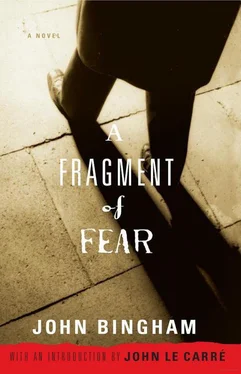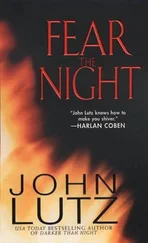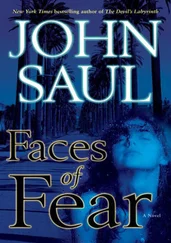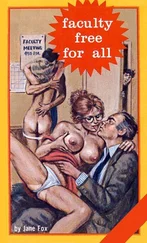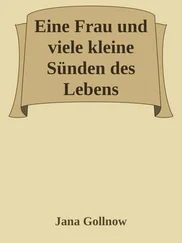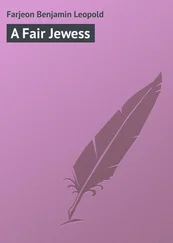John Bingham - A Fragment of Fear
Здесь есть возможность читать онлайн «John Bingham - A Fragment of Fear» весь текст электронной книги совершенно бесплатно (целиком полную версию без сокращений). В некоторых случаях можно слушать аудио, скачать через торрент в формате fb2 и присутствует краткое содержание. Жанр: Триллер, на английском языке. Описание произведения, (предисловие) а так же отзывы посетителей доступны на портале библиотеки ЛибКат.
- Название:A Fragment of Fear
- Автор:
- Жанр:
- Год:неизвестен
- ISBN:нет данных
- Рейтинг книги:3 / 5. Голосов: 1
-
Избранное:Добавить в избранное
- Отзывы:
-
Ваша оценка:
- 60
- 1
- 2
- 3
- 4
- 5
A Fragment of Fear: краткое содержание, описание и аннотация
Предлагаем к чтению аннотацию, описание, краткое содержание или предисловие (зависит от того, что написал сам автор книги «A Fragment of Fear»). Если вы не нашли необходимую информацию о книге — напишите в комментариях, мы постараемся отыскать её.
A Fragment of Fear — читать онлайн бесплатно полную книгу (весь текст) целиком
Ниже представлен текст книги, разбитый по страницам. Система сохранения места последней прочитанной страницы, позволяет с удобством читать онлайн бесплатно книгу «A Fragment of Fear», без необходимости каждый раз заново искать на чём Вы остановились. Поставьте закладку, и сможете в любой момент перейти на страницу, на которой закончили чтение.
Интервал:
Закладка:
What harm to keep it in the kitchen?
I replaced it upon its horrid saucer, and so it stood, invisible from the street, but still in being, a green and red testimony to an inherited Anglo-Saxon reluctance to burn any boats in the rear.
I went round for supper at the Bristows’ that evening.
CHAPTER 11
I have purposely refrained from describing the preparations for the wedding, now only three days distant, because for those who are not involved nothing could be more boring. If it comes to that, nothing is more boring for the bridegroom. All he is anxious to do is to marry as quickly and neatly as possible, and get off on his honeymoon, leaving all the flap behind for other people to clear up, and, incidentally, pay for.
Stanley Bristow had naturally been in his element, organising, amending, and confirming every detail, such as the hire of cars, the time of their arrival at the house, the estimated time of arrival at the church, the estimated time of departure from the church after the ceremony, the invitations, the music, the printing, the photographers, the champagne, the catering, and the flowers.
This, one felt, was his finest hour.
In so far as the atmosphere was concerned when I went round that evening, I can say that it was determinedly cheerful.
I recalled the little group I had seen on the doorstep the previous night-Stanley, the Inspector, and the sergeant-tying up the loose ends, checking my statement as far as they could, eliminating me from the list of people who could conceivably have killed poor Bunface.
To put it brutally, it seemed that Stanley and Elaine Bristow were now reconciled to the fact that Juliet was going to marry a man who was still suffering from the after-effects of a car crash, but had doubtless come to the conclusion that to postpone the wedding would be inconvenient and embarrassing.
I believed, and still believe, that Juliet’s feelings were different. She thought she was marrying a mentally sick man, but one whom she loved and could nurse back to mental health. Poor old Juliet.
I noticed this bright atmosphere at the start. There was the exaggerated enthusiasm about the wedding presents which had arrived, the optimistic prognostications about the weather, the certainty that the bridesmaids would appreciate their ghastly, tawdry presents, which, according to Elaine Bristow, looked as though they had cost twice as much as they had done, though privately I didn’t agree.
All three chattered incessantly about everything except that which was uppermost in their minds. I prayed along with them until after dinner. Then I said:
“I had another threatening note today. Like the other one.”
Juliet was not in the sitting-room. Elaine Bristow was, but she muttered something and left me alone with Stanley.
Stanley was drinking a glass of brandy. He put his glass down on a small table by his chair.
“Let’s have a look at it, old boy,” he said, in his eager, snuffly tone. “I think you ought to take it to the police, old boy, I really do. Practical jokes are practical jokes, but this is getting a bit thick, old boy, it really is.”
He gazed at me with his exophthalmic goitre eyes and held out his hand. I suppose he thought I was going to fish about in my pocket and slap it into his outstretched palm.
“I tore it up,” I said.
“Tore it up?”
“You know as well as I do, by now, that it was no good taking it to the police. You know what they think, don’t you?”
“I don’t know what the police think, old boy,” he muttered evasively. “How should I know what they think?”
I felt the anger begin to churn around in my stomach again; not as intensely as before, but enough to be going on with.
“They were here last night, weren’t they? Checking?”
“They called here, yes.”
“Checking my movements?”
“They asked a few questions, yes, they did, they asked a few questions, old boy. Just routine stuff. Nothing to worry about.”
“Nothing for whom to worry about? Nothing for them to worry about? Nothing for you to worry about? Is that it? Good old them, good old you!”
I was sitting on a settee on the left side of the fireplace, and watched him get up and walk to the grate, and stand with his back to it, tall, and droopy, and ineffectual, staring down awkwardly at me.
The door opened and Juliet came in.
“I was just saying that I had had another note, Juliet, like the other one.”
“But he tore it up,” murmured Stanley Bristow. “He tore it up, for some reason, so he can’t show it to us.”
“Never mind,” said Juliet cheerfully, and went out carrying an early morning tea-set given me by a cousin. It was egg yellow, and the cups and tea-pot were square. This cousin and I never liked each other.
She gave me a smile as she closed the door. It was a sort of open, understanding, maternal smile. It didn’t suit her.
I preferred her slow, discreet smiles which made you want to ask what the hell she was laughing at, and the secretive sidelong looks, and the withdrawn manner. I preferred the Italian streak, even if it did come from old Bardoni, rather than the open Anglo-Saxon stuff. But I was glad of the smile, and glad of the way she had received me. She had forgotten, or pretended to have forgotten, the bitterness of my parting words the previous night.
Stanley and I sat and looked at each other in silence for a few seconds, then he cleared his throat and said:
“Elaine and I have been thinking, old boy-”
“I know what you’ve been thinking, all right. So has Juliet,” I said. “In some ways I don’t blame you. I can’t produce any proof. I would if I could, but I can’t, but I think I’m beginning to see the answer.”
“Beginning to see the answer?”
“Vaguely. Possibly.”
I told him about the letter in the newspaper, and my visit to old Colonel Pearson, and the theory I had built up as a result of his casual, parting remark.
Stanley listened attentively, sometimes sipping his brandy and saying: “Ah, crooks,” or “Blackmail, eh?” or “Gangsters, what?”
Just as I finished, the door opened and Juliet came back with Elaine Bristow.
Stanley said:
“James says he now knows the answer to all this nonsense. It’s a blackmail racket, he says. This old woman, Mrs. Dawson, she helped crooks to get jobs and then later in life she blackmailed them. And now she’s been bumped off by gangsters who’ve taken over the racket. James has got the whole story from a colonel who was a prison governor, and used to supply names to Mrs. Dawson. How’s that, Elaine? What about that, Juliet? That explains it, doesn’t it? Damned serious matter, eh?”
I would have been deceived, I would have thought his enthusiasm was genuine, if I hadn’t glanced at his eyes and seen they were lacking in all lustre. He was forcing himself to smile eagerly, and forcing tones of interest into his voice, but his protruding eyes were like those of a dead fish.
“What’s James got to do with it?” asked Elaine patiently.
“How does James come into it?” asked Juliet.
Stanley looked at them without blinking.
“James says they’re afraid of what he’ll discover. The gangsters want him to lay off, that’s how James comes into it.”
“This man, this colonel, must go to the police and tell them what he knows,” said Elaine Bristow in a tired voice. “You must get him along to the police, Stanley, get him along tomorrow, this is important.”
“I will, and James can come with me. This might clear the whole matter up. I’ll go along and see him tomorrow, and James’ll come with me, won’t you.”
I couldn’t understand this suggestion.
“It’s not as simple as that,” I said hopelessly. “You’ve jumped to conclusions. I didn’t say this was what had happened. I didn’t say that at all, all I said was that this was what might have happened. And even that was based on a joking remark by Colonel Pearson. Anyway, it’s too late. You can’t see him, he’s gone.”
Читать дальшеИнтервал:
Закладка:
Похожие книги на «A Fragment of Fear»
Представляем Вашему вниманию похожие книги на «A Fragment of Fear» списком для выбора. Мы отобрали схожую по названию и смыслу литературу в надежде предоставить читателям больше вариантов отыскать новые, интересные, ещё непрочитанные произведения.
Обсуждение, отзывы о книге «A Fragment of Fear» и просто собственные мнения читателей. Оставьте ваши комментарии, напишите, что Вы думаете о произведении, его смысле или главных героях. Укажите что конкретно понравилось, а что нет, и почему Вы так считаете.
